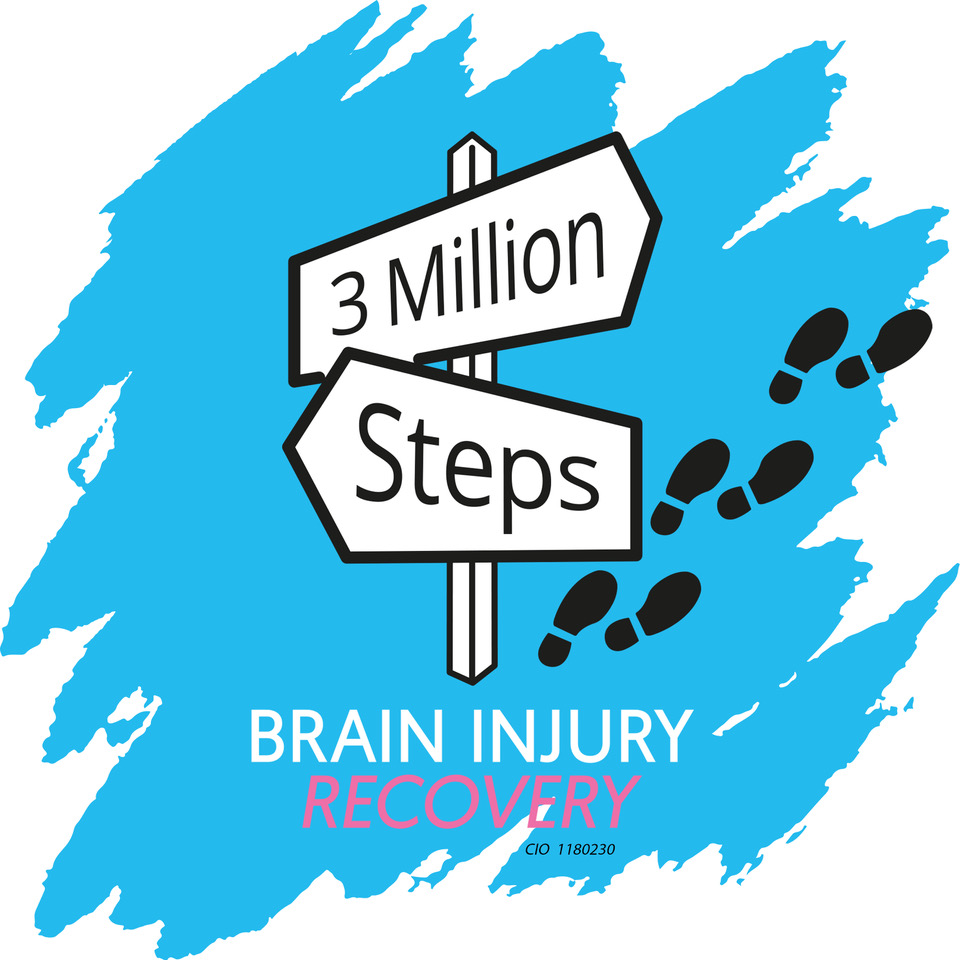
How 3 Million Steps can help
We understand that everyone is different and everyone’s brain injury is different. Therefore, continuation of successful rehabilitation needs to involve personal interests, benefits and choice as well as the comfort of knowing there is help to fund the therapy of choice. That’s what makes 3 Million Steps different. We help fund activities, services or equipment for the next steps of recovery.
No one chooses brain injury but with help, people can choose how to improve their new life.
Initial rehabilitation is often funded by the NHS or through private healthcare, however it is often time limited. Our personal experience and professional research prove that recovery doesn’t stop at discharge. This is where we step in. We aim to bridge the gap and help survivors continue their rehabilitation into the future by providing financial help.
Sometimes people may not know what type of activity or service could be most effective but the cost of trying can become a barrier. 3 Million Steps enables people to try different activities, without using up already stretched personal finances.
We also work closely with organisations who work with brain injury survivors, together we are creating a ‘Continuing Neuro-Rehabilitation Menu’ for those that may not know what is available or need further guidance. This menu will be designed to inform and inspire and is currently being developed and will be available soon!
In addition, 3 Million Steps can help with the cost of equipment or accessories needed to participate in activities such as swimwear, exercise mats or bands.
Other examples of how 3 Millions Steps can support survivors and families include:
- A one-off private check-up for peace of mind
- Your Health professionals can offer unbiased advice and help with purchasing or applying for a service or equipment e.g. mobility aids, that could help or improve recovery
- The support from family and carers isn’t invisible – they provide the rock for survivors and others, but rocks are useless if they crumble. We can also support family and carers too with information on how to find help and support, for example independent professional counselling sessions or financial advice.
If there is something that 3 Million Steps could help you fund, then please fill out the application form and send it to us via email or post.
Why we set up 3 Million Steps
Brain injuries are unpredictable and devastating – it doesn’t care who you are. There is often no warning, no time to prepare and the debilitating effects can’t be predicted.
The road to recovery is a long and painful one, yet with early rehabilitation you have the best chance of recovery in all human functions; cognitive, physical, behavioural and emotional. Brain Injuries no longer mean the definite end of living, but a different re-start to a life still worth living.
The optimal time for brain injury recovery is the first five years – and recovery is a financial burden. People, just like you and me, simply can’t fund five or more years of rehabilitation. Nor can our already overstretched health system.
Brain injury doesn’t discriminate between gender, race or age and doesn’t care whether you are a student, father, grandmother or a 29-year-old Scuba Diving Instructor, like I was.
None of the medical professionals involved in my treatment could say for certain whether I had suffered a seizure or mini-stroke when I was driving – causing me to crash my car into a concrete post. My injuries were extensive. Six main bleeds on my brain. A traumatic brain injury. A broken neck. Paralysis down my right side. Twisted double vision. Unable to talk, walk or swallow. My journey to recovery was going to be a long one and would involve many people.
Overnight my world had changed. Unable to work, my partner had to give up his job to be by my side and become my full-time carer. With no income and our savings dwindling away as the weeks went on, we moved in with my parents.
Through the NHS, I received nine months of intensive neurorehabilitation with the brilliant neurorehabilitation team at Livability Icanho in Stowmarket, Suffolk. I had made significant progress, but I knew I still had four years of rehabilitation left in me; I didn’t want this new life to be it. At 30 years of age I wasn’t ready to accept this was how I was going to be for the rest of my life. I knew I could do more.
And so, my journey of personal financing, relying on my family and friends, and trial and error began.
Fortunately, the team at Livability Icanho pointed me in the direction of recovery activities I could try. It was important I found activities stimulating and see that I could improve upon them. I needed to stay motivated on this long and arduous recovery. I began to understand just how difficult this would all have been if I was on my own, financially and emotionally, a situation that so many people unfortunately find themselves in. Without others looking out for me during such a vulnerable and surreal time I know my recovery wouldn’t have been, and may not have ever been, this advanced.
To put things in perspective, I received 6 – 8 hours of NHS rehabilitation a week, for 9 months. Once the NHS rehabilitation stopped, to continue as a private patient, it would cost around £120 per hour. A cost I couldn’t afford. With help, I found more affordable activities that cost around £6.50 per hour but when you’re unable to work, this cost per month is significant and even prohibitive, leaving sufferers having to dramatically reduce the amount of rehabilitation to what they can afford.
Everyone deserves a chance to recover and regain a high quality of life. This may not be total, it may not be complete, but we believe that everyone deserves a chance to regain the best quality of life they can. We live in a society where the research and evidence are clear for brain injury recovery, and the facilities, professionals and tools are available but at a price.
Together with our charity, 3 Million Steps, we are asking you to help us take the financial burden from brain injury survivors and their carers so they can concentrate on their recovery and once again live with dignity, self-worth and return to being a valued member of society and their family.
